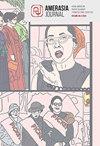从万隆到小石城:达利普·辛格·桑德斯与种族自由主义的局限
IF 0.4
4区 社会学
0 HUMANITIES, MULTIDISCIPLINARY
引用次数: 0
摘要
摘要本文简要回顾了1957年至1958年冬天,第一位当选美国国会议员的亚裔美国人、印度裔美国人和锡克裔美国人达利普·辛格·桑德斯(Dalip Singh Saund)与1955年在印度尼西亚万隆举行的亚非会议一起,在国家的支持下穿越亚洲的历程。作为美国努力在美国种族问题上展现新的和解姿态的大使,桑德斯不仅被视为美国理想和普遍性的象征,而且也是美国政府更广泛努力的一部分,以应对世界范围内对美国种族主义的批评,与新兴的亚洲和非洲国家建立关系,以及遏制对全球种族和经济秩序进行彻底改组的可能性。桑德斯利用他作为一个以前被排斥的移民和他所看到的完全被同化的公民的文化权威,庆祝国内的种族自由秩序,并将种族排斥的历史重塑为民族包容的成功故事。桑德斯的种族自由主义是未来几十年将出现的保守主义和新保守主义对种族的回应的先驱,这些回应淡化了美国种族主义的持久性和结构性,并压制了万隆等地出现的反殖民主义和反种族主义的批评和亚非团结的示威。本文章由计算机程序翻译,如有差异,请以英文原文为准。
From Bandung to Little Rock: Dalip Singh Saund and the Limits of Racial Liberalism
ABSTRACT This essay briefly examines the state-sponsored journey of Dalip Singh Saund – the first Asian American, Indian American, and Sikh American to be elected to the United States Congress – across Asia in the winter of 1957–1958 alongside the 1955 Afro-Asian Conference in Bandung, Indonesia. As an ambassador of American efforts to put forward a new and conciliatory face on the issue of race in the United States, Saund was deployed not only as symbol of American ideals and universality, but also as part of broader U.S. state efforts to counter worldwide criticism of U.S. racism, to build relations with emerging Asian and African nations, and to contain the possibility of a radical restructuring of the global racial and economic order. Saund used his cultural authority as a formerly excluded immigrant and, as he saw, fully assimilated citizen to celebrate a racially liberal order at home and to reframe histories of racial exclusion into triumphant stories of national inclusion. Saund’s racial liberalism served as a precursor to the conservative and neoconservative responses to race that would emerge in the coming decades, responses that downplayed the persistent and structural nature of U.S. racism and suppressed the kinds of anticolonial and antiracist critiques and demonstrations of Afro-Asian solidarity emerging from sites like Bandung.
求助全文
通过发布文献求助,成功后即可免费获取论文全文。
去求助
来源期刊

AMERASIA JOURNAL
HUMANITIES, MULTIDISCIPLINARY-
CiteScore
0.40
自引率
0.00%
发文量
19
期刊介绍:
Since 1971, the Press has published Amerasia Journal, the leading interdisciplinary journal in Asian American Studies. After more than three decades and over 16,000 pages, Amerasia Journal has played an indispensable role in establishing Asian American Studies as a viable and relevant field of scholarship, teaching, community service, and public discourse.
 求助内容:
求助内容: 应助结果提醒方式:
应助结果提醒方式:


